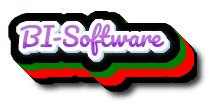In today’s competitive business landscape, staying ahead of the curve is crucial for success. One key tool that can help organizations achieve their goals is Customer Relationship Management (CRM) software. But what is CRM software, and how can it benefit your business? In this comprehensive guide, we will delve into the world of CRM, exploring its significance, features, and applications, as well as addressing some of the most frequently asked questions about this powerful technology.

What is CRM Software?
CRM software is a type of technology designed to help businesses manage and analyze customer interactions and data. The primary purpose of CRM is to enable companies to build and maintain strong, long-term relationships with their customers, improving overall customer satisfaction and driving revenue growth. CRM systems can store a wide range of data, including contact information, sales records, marketing interactions, and customer feedback.
Significado of CRM Software
The significance of CRM software lies in its ability to provide a 360-degree view of customers, empowering businesses to tailor their strategies to meet specific needs and preferences. By analyzing customer data and behavior, organizations can:
- Personalize Customer Experiences: With a deeper understanding of their customers, businesses can create personalized experiences, enhancing loyalty and satisfaction.
- Improve Sales Efficiency: CRM software can automate sales processes, reduce administrative tasks, and provide sales teams with valuable insights to close more deals.
- Enhance Marketing Effectiveness: By analyzing customer behavior and preferences, marketing teams can develop targeted campaigns that resonate with their audience, driving conversions and revenue.
- Optimize Customer Support: CRM systems enable support teams to quickly access customer history, issues, and resolutions, facilitating prompt and effective problem-solving.
- Inform Data-Driven Decisions: CRM software provides a unified platform for analyzing customer data, allowing businesses to make informed decisions, identify trends, and measure the success of their strategies.
Features of CRM Software
While different CRM systems offer varying features, most solutions typically include:
- Contact Management: Store and manage customer contact information, interactions, and history.
- Sales Management: Automate sales processes, track leads, and analyze sales performance.
- Marketing Automation: Create, execute, and track marketing campaigns, as well as measure their effectiveness.
- Customer Service: Provide multi-channel support, track customer issues, and measure resolution rates.
- Analytics and Reporting: Gain insights into customer behavior, sales performance, and marketing effectiveness with advanced analytics and reporting tools.
Types of CRM Software
CRM software can be broadly categorized into three types:
- Operational CRM: Focuses on automating and streamlining business processes, such as sales, marketing, and customer service.
- Analytical CRM: Analyzes customer data to gain insights and make data-driven decisions.
- Collaborative CRM: Enables cross-functional collaboration and integration of multiple departments to ensure seamless customer experiences.
Implementing CRM Software: Best Practices
To get the most out of CRM software, businesses should:
- Define Clear Objectives: Identify the primary goals and challenges the CRM system is designed to address.
- Choose the Right Solution: Select a aligns with your business needs and scales with growth.
- Provide Ongoing Training: Ensure users understand how to use the system and stay up-to-date with new features.
- Regularly Monitor and Analyze Data: Track key metrics, analyze results, and make data-driven decisions.
Common Challenges and Misconceptions
When implementing CRM software, businesses may face:
- Resistance to Change: Some team members may resist adopting new technology or changing established workflows.
- Data Quality Issues: Inaccurate or incomplete data can limit the effectiveness of the CRM system.
- Insufficient Training: Without adequate training, users may not maximize the full potential of the CRM system.
- Misaligned Expectations: Businesses may expect too much from their CRM system, leading to disappointment or disillusionment.
Frequently Asked Questions (FAQ)
Q: What is the main purpose of CRM software?
A: The primary purpose of CRM software is to manage and analyze customer interactions and data to improve customer satisfaction and drive revenue growth.
Q: Can CRM software help with sales and marketing efforts?
A: Yes, CRM software can automate sales processes, provide insights to close more deals, and help develop targeted marketing campaigns that drive conversions and revenue.
Q: What is the difference between operational, analytical, and collaborative CRM?
A: Operational CRM focuses on automating business processes, analytical CRM analyzes customer data for insights, and collaborative CRM enables cross-functional collaboration for seamless customer experiences.
Q: How can businesses choose the right CRM solution for their needs?
A: Businesses should consider factors such as company size, industry, budget, and specific needs when selecting a CRM solution that scales with growth and aligns with their goals.
Conclusion
CRM software is a powerful tool for businesses to unlock growth, enhance customer satisfaction, and stay competitive in the market. By understanding the significance of CRM software, exploring its features, and selecting the right solution for their needs, organizations can unlock the full potential of their customer relationships and drive success. While challenges may arise, ongoing training, monitoring, and analysis of customer data can ensure a seamless CRM implementation. By investing in a comprehensive CRM solution, businesses can position themselves for long-term growth and establish lasting customer relationships that drive loyalty and revenue.
Remember, CRM software is an essential investment for businesses that prioritize customer satisfaction and loyalty. Don’t hesitate to take the leap and experience the transformative power of CRM software for yourself. With this guide, you are well on your way to understanding the importance of CRM and selecting the right solution to take your business to new heights.
Closure
Thus, we hope this article has provided valuable insights into The Ultimate Guide to CRM Software: Unlocking Business Growth and Customer Satisfaction. We hope you find this article informative and beneficial. See you in our next article!
